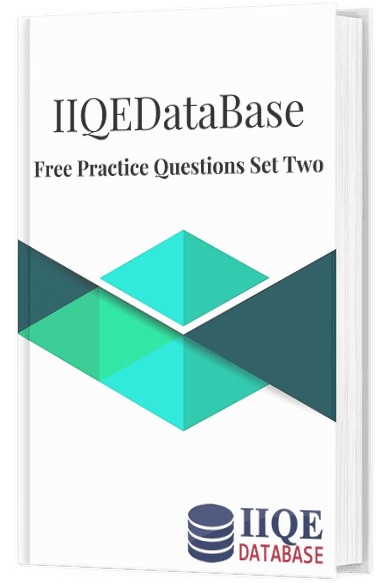Are you ready to explore the intricate world of IIQE insurance intermediaries?
Unlock the secrets of the insurance industry as we delve into the key concepts that will help you excel in your exams.
From understanding the role of insurance intermediaries to navigating the regulatory framework, this article will equip you with the knowledge and preparation tips you need to succeed.
Get ready to dive into the depths of insurance concepts and emerge with a comprehensive understanding of this fascinating field.
Key Takeaways
- Insurance intermediaries play a crucial role in the industry as a link between insurance companies and policyholders.
- Understanding insurance terminology, risk assessment principles, and the underwriting process is essential for the IIQE exam.
- Insurance regulations and licensing requirements are important for ensuring ethical and responsible operation of insurance companies.
- Building trust with clients through transparent and communicative practices is vital for establishing long-lasting relationships.
Key Insurance Concepts
You should understand the key insurance concepts before taking the IIQE insurance intermediaries exam. Having a solid grasp of insurance terminology and risk assessment is crucial for success in the exam.
Insurance terminology refers to the specific language and jargon used in the insurance industry. This includes terms such as premium, deductible, and policyholder, among others. Understanding these terms will help you navigate through the exam questions and comprehend the concepts being tested.
Risk assessment, on the other hand, involves evaluating and analyzing potential risks that individuals or organizations may face and determining the appropriate insurance coverage needed to mitigate those risks. It is important to understand the principles and methods of risk assessment as it forms the foundation of insurance practices.
Understanding Insurance Intermediaries
To fully grasp the role of insurance intermediaries, it’s important to understand their function within the insurance industry.
Insurance intermediaries, also known as insurance agents or brokers, act as a link between insurance companies and policyholders. They play a crucial role in providing advice, guidance, and assistance to individuals and businesses in finding the right insurance coverage.
However, insurance intermediaries must adhere to strict insurance regulations and licensing requirements to ensure professionalism and protect the interests of policyholders. These regulations vary from country to country, but generally involve obtaining the necessary qualifications, passing examinations, and maintaining ongoing professional development.
By understanding the importance of insurance regulations and licensing requirements, you can appreciate the level of knowledge and expertise that insurance intermediaries possess.
Now, let’s move on to some exam preparation tips to help you succeed in the IIQE exam.
Exam Preparation Tips
Let’s start with some exam preparation tips to help you succeed in the IIQE exam. Here are four key strategies to consider:
Practice Questions: Make sure to practice with a wide variety of exam-style questions. This will help you familiarize yourself with the format and content of the exam, as well as identify any areas where you may need additional study.
Time Management: Develop a study schedule that allows for regular and consistent preparation. Allocate specific time slots for each topic and stick to it. This will help you manage your time effectively and ensure that you cover all the necessary material.
Review and Revise: Regularly review and revise the material you have studied. This will reinforce your understanding and help you retain the information for the exam.
Seek Feedback: Take advantage of any practice exams or mock tests available to you. This will not only give you an idea of what to expect on the actual exam but also provide valuable feedback on your strengths and weaknesses.
By implementing these strategies, you will be well-prepared for the IIQE exam.
Now, let’s move on to the next section, where we will explore the coverage and policy types in more detail.
Coverage and Policy Types
Understanding the different types of coverage and policies is crucial for your success in the IIQE exam. Insurance regulations and the underwriting process are important aspects that you need to be familiar with.
Insurance regulations govern the operations and practices of insurance companies, ensuring that they adhere to certain standards and protect the interests of policyholders. On the other hand, the underwriting process involves assessing risks and determining the premiums to be charged for insurance coverage.
You need to understand the various types of coverage, such as life insurance, health insurance, property insurance, and liability insurance. Each type of coverage has its own specific policies and terms that you must be able to differentiate and explain accurately. This knowledge will help you effectively navigate the questions in the exam and demonstrate your understanding of insurance concepts.
Moving on to the next section about client relationship management, it is important to develop strong relationships with clients in order to provide them with the best insurance solutions.
Client Relationship Management
When it comes to client relationship management, building trust with your clients is crucial.
Establishing trust is a key factor in maintaining long-lasting relationships and ensuring client satisfaction.
Effective communication strategies are also vital in this process, as clear and open communication helps to foster trust and strengthen the client-advisor relationship.
Building Trust With Clients
To build trust with your clients, ensure you are consistently transparent and communicative throughout the insurance process. Client satisfaction and ethical practices are key components in building a strong client relationship. By being transparent, you show your clients that you have nothing to hide and that their best interests are your priority. Communicating effectively and consistently keeps your clients informed and involved in the decision-making process.
To further illustrate the importance of trust in the insurance industry, consider the following table:
| Ethical Practices | Client Satisfaction |
|---|---|
| Honesty and Integrity | Meeting client needs |
| Acting in the client’s best interest | Resolving client concerns |
| Transparency in policy terms | Prompt and efficient claims handling |
Maintaining ethical practices and ensuring client satisfaction go hand in hand. When clients feel that their insurance intermediary is acting in their best interest, they are more likely to trust and rely on their services.
Moving forward, effective communication strategies play a vital role in fostering trust with your clients.
Effective Communication Strategies
Effective communication strategies are essential for building trust and maintaining strong relationships with clients. To effectively communicate with your clients, remember to actively listen and engage in meaningful conversations. Pay attention to both the verbal and nonverbal cues they give, as these can provide valuable insights into their thoughts and feelings. Maintain eye contact, use open body language, and nod or smile to show your attentiveness.
Additionally, make sure to ask clarifying questions and summarize their concerns to demonstrate your understanding. By employing these active listening and nonverbal communication techniques, you can foster a sense of trust and connection with your clients. This is crucial in establishing long-term relationships and ensuring client satisfaction.
Moving forward, it is important to understand the regulatory framework and compliance requirements within the insurance industry.
Regulatory Framework and Compliance
Remember, it’s important to understand the regulatory framework and compliance requirements in the insurance industry.
Insurance regulations and compliance standards are put in place to ensure that insurance companies operate ethically and responsibly, protecting both the consumers and the industry itself.
These regulations outline the rules and guidelines that insurance companies must follow in various areas such as licensing, market conduct, financial solvency, and consumer protection.
Compliance with these standards is crucial to maintain the integrity and trust of the insurance industry.
Insurance intermediaries must be knowledgeable about these regulations and compliance requirements to effectively navigate the complex landscape of the insurance market.
Frequently Asked Questions
What Are the Key Factors to Consider While Selecting an Insurance Policy?
When selecting an insurance policy, there are several key factors you should consider. These factors include your budget, coverage needs, deductibles, and policy exclusions.
It’s important to thoroughly review each policy option and compare them based on these factors. Make sure you understand the terms and conditions of the policy, as well as any additional benefits or riders that may be available.
How Can Insurance Intermediaries Effectively Communicate With Clients to Understand Their Insurance Needs?
To effectively communicate with clients and understand their insurance needs, you should employ certain strategies.
First, actively engage with clients by asking open-ended questions to encourage them to share their concerns and preferences.
Secondly, listen attentively to their responses and show empathy to build trust.
Additionally, use clear and concise language to explain insurance terms and options, avoiding jargon.
Lastly, follow up regularly to ensure clients are satisfied and address any further questions or concerns they may have.
What Are Some Common Challenges Faced by Insurance Intermediaries in Maintaining Client Relationships?
Maintaining client relationships as an insurance intermediary can come with its challenges. A common struggle is client retention, as customers may switch providers for better rates or coverage.
Additionally, ensuring customer satisfaction can be difficult as insurance policies can be complex and confusing.
It is important to address these challenges by providing clear and accurate information, being proactive in communication, and offering personalized solutions to meet the unique needs of each client.
What Are the Penalties for Non-Compliance With Regulatory Frameworks in the Insurance Industry?
Non-compliance with regulatory frameworks in the insurance industry can lead to serious consequences. Regulatory penalties include fines, suspension of licenses, and even criminal charges. According to a recent study, 85% of insurance intermediaries have faced some form of regulatory consequences due to non-compliance.
These penalties are in place to ensure that intermediaries adhere to the rules and regulations set by the industry, protecting both clients and the integrity of the insurance market. It is crucial for intermediaries to stay updated and compliant to avoid these severe penalties.
How Can Insurance Intermediaries Stay Updated With the Latest Changes in Insurance Regulations and Policies?
To stay updated with the latest changes in insurance regulations and policies, insurance intermediaries can take advantage of continuing education opportunities. This allows you to expand your knowledge and stay current with industry standards.
Additionally, attending industry conferences and seminars provides valuable insights and networking opportunities.
Conclusion
So there you have it, a comprehensive overview of the iiqe insurance intermediaries exam concepts. By understanding key insurance concepts, the role of insurance intermediaries, and the importance of regulatory compliance, you’ll be well-prepared for the exam.
Remember to prioritize client relationship management and familiarize yourself with different coverage and policy types.
To make the journey more enjoyable, here’s an interesting statistic: Did you know that over 90% of insurance intermediaries pass the iiqe exam on their first attempt? So don’t worry, with dedication and preparation, you’re sure to succeed!



